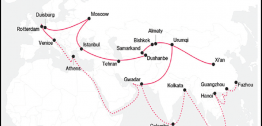Last month, you should have bought shares of RSP Permian Inc. (RSPP) at our limit price on May 22. Unfortunately, you were stopped out of the stock in early June with a modest loss.
Disappointment surrounding the May 25 OPEC meeting decision to extend oil production cuts triggered a wave of selling across the oil sector. Added oil market weakness came from growing supply concerns — after the EIA upwardly revised their U.S. oil production outlook — and a surge in oil rig drilling activity.
At this point, it’s best to stand aside and wait for the picture to clear.
You should also be filled on your order to buy Range Resources (RRC) at $24.15. Great!
While the stock weakened in early June, we maintain a positive view.
The fact is that negatives facing natural gas — including a buildup in supply after a warmer-than-average U.S. winter and a spring-demand lull — are already discounted by the market.
In the meantime, growing prospects for above normal summer temperatures across the U.S. are sure to increase cooling demand. This is important because natural gas used in power generation represents 1/3 of U.S. consumption. And that leaves natural gas and RRC susceptible to higher prices ahead.
Finally, there’s been an upturn in agricultural commodities in June. And that bodes well for your PowerShares DB Agriculture Fund (DBA) position.
This comes as grain markets fire up. This sector holds a 31% weighting in DBA and benefits from several weather issues that are building a risk premium in wheat and corn.
Additionally, the wheat market is still coming to grips with a late-April blizzard that damaged a large portion of the winter-wheat crop in southern Kansas.
Added upside potential for DBA comes from soft commodities, which hold a 33% weighing in DBA.
Support for sugar comes from delays in the Brazilian harvest, with more rain in near-term forecasts. And this is expected to fuel a larger short-covering rally as the market works through a severely oversold technical condition.
Meanwhile, heavy rainfall in key cocoa growing regions of West Africa pose a threat to mid-crop production. And there’s concern that Ghana’s cocoa production will fall short of the International Cocoa Organization’s (ICCO) forecast of 950,000 tonnes.
All factors worthy of pushing DBA sharply higher.




